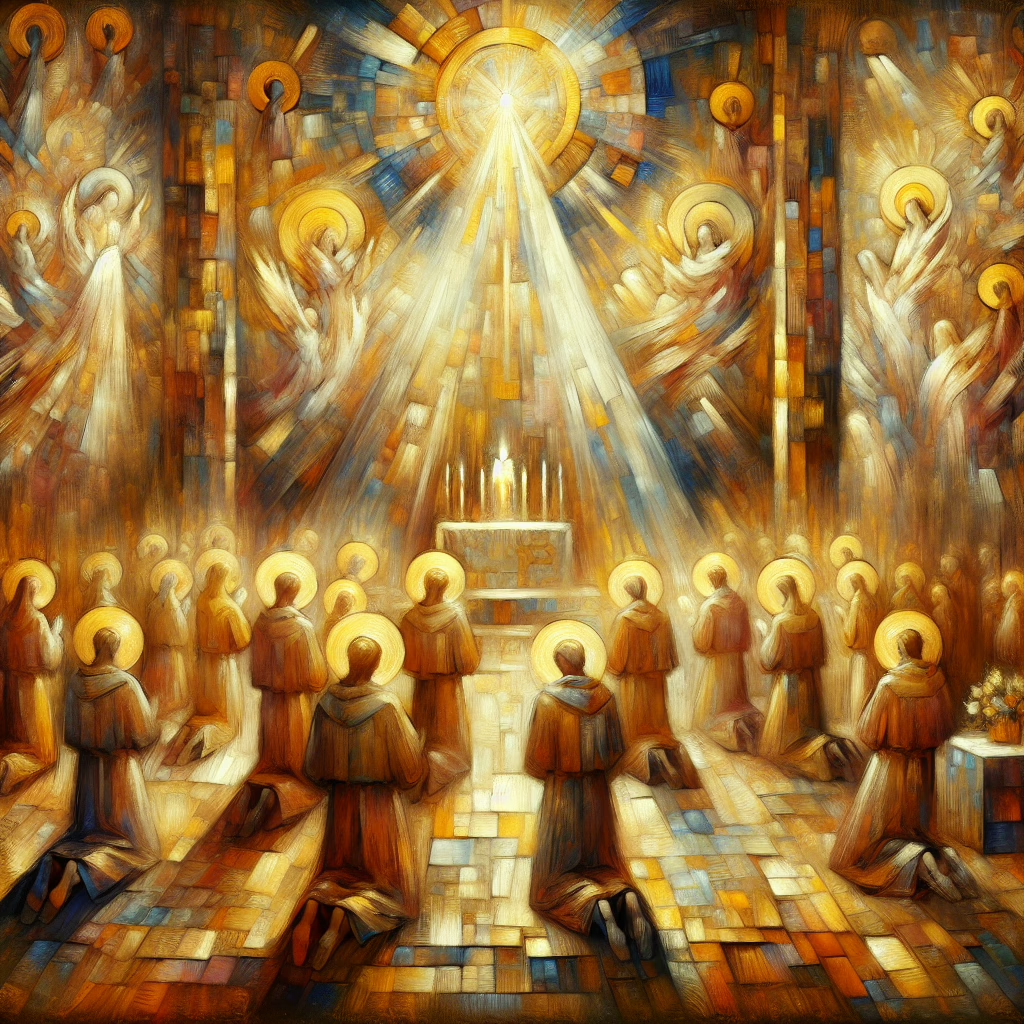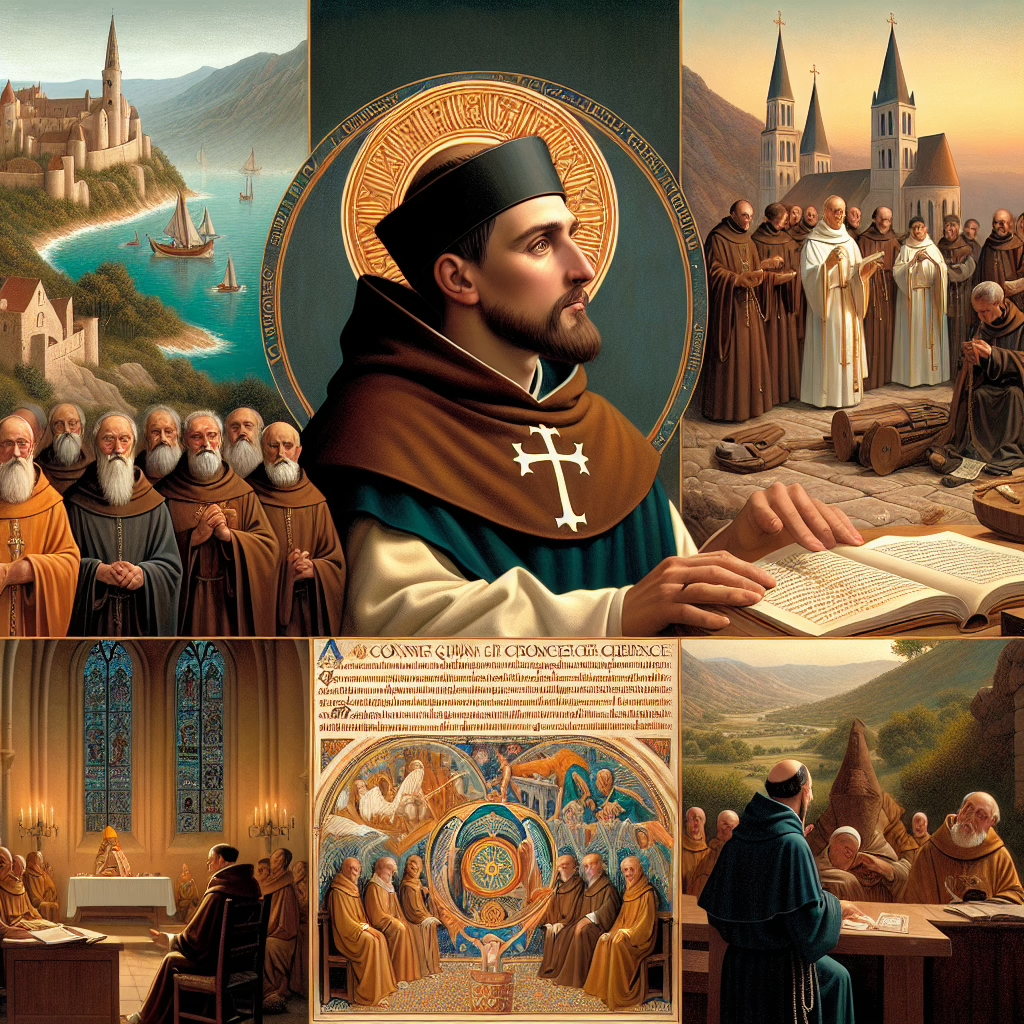Protestants vs. Catholics: Understanding the Liturgy of the Saints
Introduction: Reconciling Differences in Liturgical Practices
In the tapestry of Christian worship, the threads of liturgical practice often separate rather than unite. Among these differences is the Catholic Liturgy of Saints, met with skepticism from some Protestant quarters. Critics argue that such practices detract from the pure worship of God. However, within the traditions of the Catholic Church lies a profound and ancient understanding of the Communion of Saints. This blog will explore these objections and offer a reasoned Catholic response.
1. Objection: Elaborate Liturgies are a Distraction from Worship
1.1 Protestant Argument
- Protestant theology often emphasizes direct worship of God as paramount, raising concerns about elaborate rituals.
- The fear is that veneration of saints could divert glory from God, compromising the purity of worship.
- The simplicity of worship is foregrounded as a biblical precedent, advocating for a focus on sola scriptura or scripture alone.
1.2 Catholic Response: Unity in Communion of Saints
- The Catholic doctrine of the Communion of Saints integrates all faithful—both living and deceased—in a unified act of worship.
- Differentiating between latria (worship due to God alone) and dulia (veneration given to saints) is crucial. The saints are not competitors for God’s glory but rather revered as intercessors who, through their closeness to God, amplify the prayers of the faithful.
- Saints serve as models of faith and as companions in prayer, bringing believers closer to God, not away from Him.
1.3 Supporting Evidence
"We beseech you, brethren, by the coming of our Lord Jesus Christ, and by our gathering together unto him…"
— St. Ignatius of Antioch, Letter to the Ephesians
- Biblical passages such as Revelation 5:8 illustrate the communal nature of prayer, where the elders present the prayers of the faithful to God.
- The early Church's practice of venerating saints, as evidenced by inscriptions and relics in catacombs, reflects a longstanding tradition of seeking their intercession.
2. Objection: Lack of Biblical Precedent for Saintly Intercession
2.1 Protestant Argument
- A common Protestant objection is the perceived absence of explicit examples of saintly intercession within the New Testament.
- They argue that prayers to saints are not justified due to scriptural silence on this practice.
2.2 Catholic Response: Scriptural Foundations of Saintly Intercession
- Scripture, while not explicitly detailing intercession by saints, is replete with examples of intercessory prayer. James 5:16 encourages believers to pray for one another, setting a precedent for intercession.
- Hebrews 12:1 describes a "cloud of witnesses," indicating that the saints are actively involved in the spiritual lives of the faithful.
- Church Fathers such as St. Augustine discuss the intercession of saints, affirming it as a practice rooted in early Christian tradition.
2.3 Supporting Evidence
3. Historical Context and Development of Liturgical Practices
3.1 Protestant Concerns on Historical Developments
- The Reformation critiqued post-apostolic developments, including the Liturgy of the Saints, as deviations from early Church practices.
- The emphasis on sola scriptura advocated a return to biblical fundamentals unencumbered by tradition.
3.2 Catholic Perspective: Continuation of Early Christian Tradition
- The veneration of saints is not a medieval innovation but has roots in early Christianity, with practices supported by Sacred Tradition.
- The Catholic Church views liturgical developments as organic growths within the Church's life, harmonizing with Scripture and Apostolic Tradition.
3.3 Supporting Evidence
"But by prayer the apostles and prophets, as well as those who have attained to God, keep the faith and guard the Church."
— Origen, On Prayer
- References to early Christian writers like Origen provide evidence of saintly intercession in the fledgling Church.
- Link: History of Catholic Liturgy for a deeper examination.
Conclusion: Unity in Diversity of Liturgical Expressions
- Catholic Liturgy of Saints, far from detracting from God’s glory, enriches the worship experience by linking believers to their spiritual ancestors.
- Dialogue between denominational lines encourages a mutual understanding and appreciation for diverse liturgical practices.
- For further exploration of Catholic teachings, consider reading the Catholic Catechism.
In the spirit of St. Thomas Aquinas, may these responses nurture a deeper understanding and perhaps foster new dialogues on the rich traditions of the Christian faith.






Leave a Reply